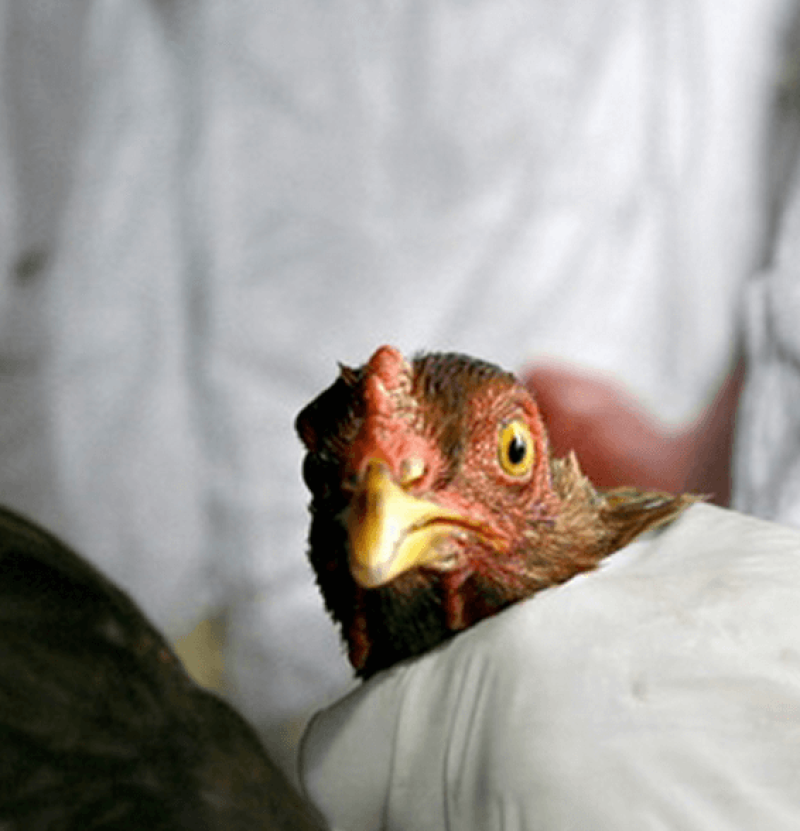The solution to avian flu, the virus responsible for the devastating eradication of chicken and turkey flocks across much of the nation, is alive and clucking across the pond.
It’s a chicken.
Genetically modified by researchers in the UK, the bird doesn’t pass the virus on to other birds. Had all the chickens in this country been modified, the flu virus would never have made it past Chicken Zero, the first bird infected.
The U.S. Department of Agriculture reports that 48 million birds have now been affected. And, by “affected,” the agency means “slaughtered.” That’s where the GM chicken comes in.
Laurence Tiley, a virology specialist at the University of Cambridge who helped develop the bird, explains that the scientists modified the chicken in such a way as to fool the virus into not replicating. If a GM bird picks up the flu virus it dies, but doesn’t pass the virus on to other birds. While the GM bird is still in the lab, and not yet in production, Tiley says it wouldn’t take much to get there.
Genetic modification isn’t the only way to control avian flu, of course—vaccines are being tested. But vaccines can be expensive, and the flu vaccine is too new, and its implementation too complex, for anyone to have worked up a reliable estimate.
Tiley doesn’t forsee the GM chicken being introduced into the UK or the U.S. any time soon. “The most likely way these types of animals will be introduces is in countries that have more pragmatic views of GM,” he says: “China, for example.”
The GLP aggregated and excerpted this blog/article to reflect the diversity of news, opinion and analysis. Read full, original post: Want a Bird Flu-Free World? Consider Breeding Resistant Birds































